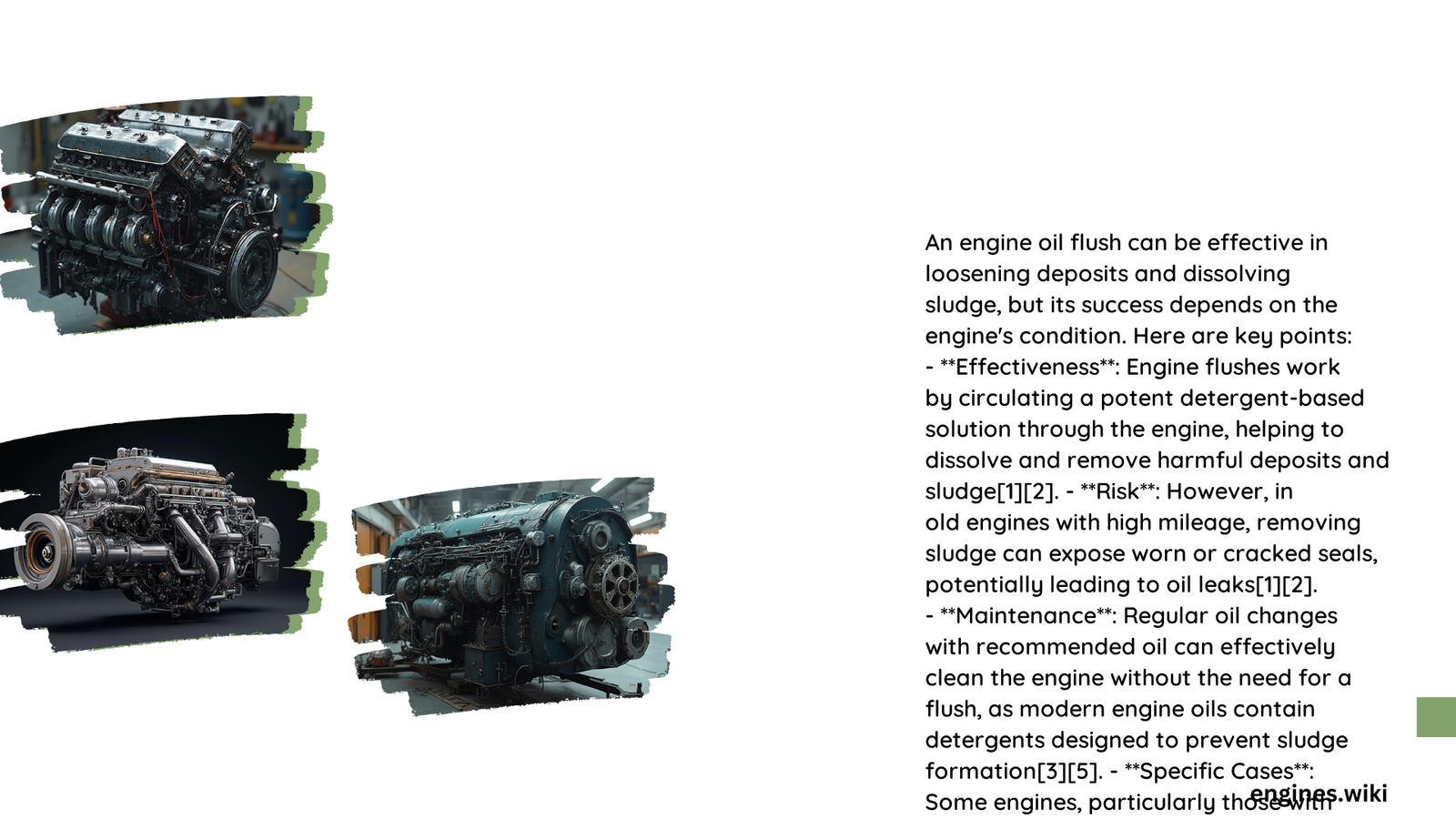Engine oil flush remains a controversial topic among automotive professionals, with mixed opinions about its actual effectiveness. Vehicle owners frequently question whether this maintenance procedure genuinely improves engine performance or potentially causes more harm than good. This comprehensive guide will explore the scientific evidence, expert perspectives, and practical considerations surrounding engine oil flush techniques, providing clarity for car owners seeking optimal engine health.
What Is an Engine Oil Flush?
An engine oil flush is a chemical treatment designed to remove accumulated sludge, debris, and contaminants from an engine’s internal components before performing an oil change. The primary goal is to clean critical engine parts and improve overall lubrication efficiency.
Does Engine Oil Flush Really Work? Examining the Evidence

Effectiveness of Oil Flush Techniques
| Scenario | Potential Benefit | Risk Level |
|---|---|---|
| Older Vehicles (>100,000 miles) | Moderate | High |
| Well-Maintained Modern Vehicles | Minimal | Low |
| Vehicles with Significant Sludge Buildup | Significant | Medium |
Expert Perspectives on Oil Flush Effectiveness
Most automotive engineers and manufacturers recommend caution when considering engine oil flushes:
- Manufacturer Warnings: Companies like GM and Honda generally advise against routine engine flushes
- Potential Risks:
- Dislodging large deposit chunks
- Potential damage to delicate engine components
- Temporary masking of underlying mechanical issues
When Should You Consider an Engine Oil Flush?
Recommended scenarios for potential oil flush implementation:
- Vehicles with documented sludge accumulation
- Engines experiencing reduced performance
- Cars that have experienced extended periods without regular maintenance
- Vehicles with significant mileage and inconsistent oil change history
Risks Associated with Engine Oil Flush
Critical considerations before performing an oil flush:
- Potential Mechanical Complications:
- Clogging of small oil passages
- Damage to precision engine components
- Potential seal deterioration
- Risk of dislodging critical deposits
Alternative Maintenance Strategies
Instead of relying solely on engine oil flush, consider these proactive maintenance approaches:
- Regular, scheduled oil changes
- Using high-quality synthetic oils
- Maintaining consistent service intervals
- Monitoring engine performance indicators
Conclusion: Informed Decision-Making
While engine oil flush can provide benefits in specific scenarios, it is not a universal solution. Vehicle owners should:
- Consult professional mechanics
- Understand their specific vehicle’s requirements
- Prioritize consistent, quality maintenance
Professional Recommendations
- Perform comprehensive engine diagnostics
- Follow manufacturer-recommended maintenance schedules
- Use high-quality lubricants
- Address performance issues promptly
Technical Insights
Modern engines feature complex lubrication systems that often require specialized care. An indiscriminate approach to engine oil flush can potentially cause more harm than good.
Key Takeaway
Does engine oil flush really work? The answer depends on multiple factors, including vehicle age, maintenance history, and specific mechanical conditions.
References
- [Society of Automotive Engineers Technical Paper]
- [GM Maintenance Guidelines]
- [Honda Engine Performance Research]
- [Automotive Lubrication Systems Journal]
Disclaimer: Always consult a certified automotive professional before implementing any maintenance procedure.
